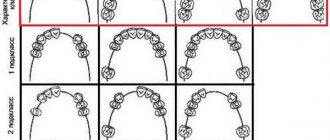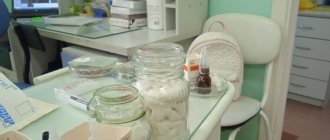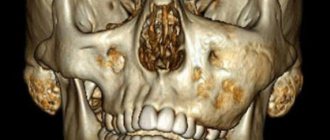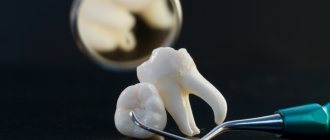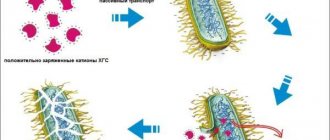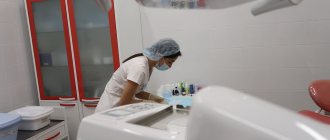1. Synonyms with string. 2. . 3. “Doctor” sentences. 4. Meaning of the word. 5. Antonyms for “doctor”. 6. Printing, . 7. Rhymes. 8. “Doctor” associations. 9. Analysis of the “doctor” composition. 10. Find more synonyms by clicking on words.
| № | Synonym | Initial form | Frequency |
| 1 | doctor (60) | doctor | 143.1 |
| 2 | operator (36) | operator | 40.9 |
| 3 | psychologist (32) | psychologist | 29.3 |
| 4 | surgeon (25) | surgeon | 22.1 |
| 5 | diagnostician (53) | diagnostician, diagnostics | 15.2 |
| 6 | white robe (11) | 14.1932 | |
| 7 | medic (25) | medic | 13.7 |
| 8 | psychiatrist (14) | psychiatrist | 9.3 |
| 9 | sculpted (11) | sculpt | 8.2 |
| 10 | paramedic (18) | paramedic | 6.4 |
| 11 | head physician (4) | head physician | 4.8 |
| 12 | veterinarian (9) | vet | 4 |
| 13 | gynecologist (9) | gynecologist | 3.7 |
| 14 | healer (25) | doctor | 3.5 |
| 15 | therapist (10) | therapist | 2.6 |
| 16 | dentist (23) | dentist | 2.5 |
| 17 | psychotherapist (4) | psychotherapist | 2.5 |
| 18 | doctor (6) | doctor | 2.4 |
| 19 | psychoanalyst (3) | psychoanalyst | 2.4 |
| 20 | scalpel (7) | scalpel | 2.3 |
| 21 | cosmetologist (7) | cosmetologist | 2.3 |
| 22 | neurologist (3) | neurologist | 1.9 |
| 23 | healer (29) | healer | 1.9 |
| 24 | pediatrician (5) | pediatrician | 1.9 |
| 25 | military doctor (1) | military doctor | 1.7 |
| 26 | pathologist (9) | pathologist | 1.6 |
| 27 | dentist (16) | dentist | 1.5 |
| 28 | core (12) | core | 1.5 |
| 29 | medicine man (59) | witch doctor, witch doctor | 1.4 |
| 30 | doctor (19) | heal | 1.4 |
| 31 | narcologist (2) | expert in narcology | 1.1 |
| 32 | Aesculapius (19) | Aesculapius | 1.1 |
| 33 | cardiologist (3) | cardiologist | 1.1 |
| 34 | sexologist (3) | sexologist | 1.1 |
| 35 | anesthesiologist (2) | anesthetist | 1 |
| 36 | pharmacist (7) | pharmacist | 1 |
| 37 | medical worker (3) | 0.90643 | |
| 38 | endocrinologist (1) | endocrinologist | 0.9 |
| 39 | sex therapist (2) | sex therapist | 0.8 |
| 40 | ophthalmologist (5) | ophthalmologist | 0.8 |
| 41 | urologist (3) | urologist | 0.8 |
| 42 | obstetrician (9) | obstetrician | 0.8 |
| 43 | external (4) | external | 0.8 |
| 44 | veterinarian (4) | veterinarian | 0.7 |
| 45 | ophthalmologist (8) | ophthalmologist | 0.7 |
| 46 | dermatologist (5) | dermatologist | 0.7 |
| 47 | speech therapist (8) | speech therapist | 0.7 |
| 48 | nutritionist (3) | nutritionist | 0.7 |
| 49 | liar (32) | liar | 0.6 |
| 50 | orthopedist (2) | orthopedist | 0.6 |
| 51 | oncologist (1) | oncologist | 0.6 |
| 52 | neurosurgeon (1) | neurosurgeon | 0.6 |
| 53 | anatomist (6) | anatomist, anatomist | 0.6 |
| 54 | resident (1) | resident | 0.5 |
| 55 | ENT (9) | ENT, Laura | 0.5 |
| 56 | epidemiologist (1) | epidemiologist | 0.5 |
| 57 | venereologist (1) | venereologist | 0.5 |
| 58 | homeopath (1) | homeopathist | 0.5 |
| 59 | traumatologist (2) | traumatologist | 0.5 |
| 60 | forensic scientist (4) | forensic scientist | 0.5 |
| 61 | healer (16) | healer | 0.5 |
| 62 | tubercular (6) | tubercular | 0.4 |
| 63 | resuscitator (2) | resuscitator | 0.4 |
| 64 | radiologist (3) | radiologist | 0.4 |
| 65 | farrier (6) | farrier | 0.4 |
| 66 | Panacea Servant (5) | 0.16045 | |
| 67 | red cross worker (3) | 0.0818 | |
| 68 | doctor for the poor (2) | 0.0229 | |
| 69 | thermologist (1) | thermologist | — |
| 70 | angiosurgeon (2) | angiosurgeon | — |
| 71 | ptochiatrist (2) | ptochiatrist | — |
| 72 | polyatr (1) | polyatr | — |
| 73 | pyrethologist (1) | pyrethologist | — |
| 74 | pediatrician (1) | pediatrician | — |
| 75 | peon (9) | peon | — |
| 76 | pean (5) | paean | — |
| 77 | ophthalmiatrician (3) | ophthalmician | — |
| 78 | otiator (1) | otiator | — |
| 79 | andrologist (1) | andrologist | — |
| 80 | orthopedist (2) | orthopedist | — |
| 81 | obducent (1) | obducent | — |
| 82 | medic (2) | medic | — |
| 83 | lithotomist (1) | lithotomist | — |
| 84 | cardiognost (1) | cardiognost, cardiognostic | — |
| 85 | Asclepiades (1) | asclepiad | — |
| 86 | Asclepius (4) | asclepius | — |
| 87 | anthropiatric (2) | anthropiatrician | — |
| 88 | aurist (2) | avrist, avristy | — |
| 89 | physiotherapist (2) | physiotherapist | — |
| 90 | chemist (1) | chemist | — |
| 91 | Yagub (1) | yaguby | — |
| 92 | geriatrician (1) | geriatrician | — |
| 93 | hakim-bashi (1) | hakim-bash | — |
| 94 | arm veterinarian (1) | arm veterinarian | — |
| 95 | arm doctor (1) | arm doctor | — |
| 96 | Correspondent (1) | correspondent | — |
| 97 | didoctor (1) | divadoctor | — |
| 98 | brig doctor (1) | brig doctor | — |
| 99 | offending doctor (1) | offending doctor | — |
| 100 | doctor (2) | doctor | — |
| 101 | occupational pathologist (2) | occupational pathologist | — |
| 102 | histologist (2) | histologist | — |
| 103 | dentist (3) | dentist | — |
| 104 | allopathic (1) | allopathic | — |
| 105 | syphilidologist (1) | syphilidologist | — |
| 106 | hygienist (2) | hygienist | — |
| 107 | medical doctor (1) | medical doctor | — |
| 108 | transplantologist (1) | transplantologist | — |
| 109 | earpiece (2) | earpiece | — |
| 110 | reflexologist (1) | reflexologist | — |
| 111 | psychophysiologist (1) | psychophysiologist | — |
| 112 | psychohygienist (1) | psychohygienist | — |
| 113 | radiologist (2) | radiologist | — |
| 114 | ophthalmic surgeon (3) | ophthalmic surgeon | — |
| 115 | nephrologist (1) | nephrologist | — |
| 116 | cutter (2) | cutter | — |
| 117 | infectious disease specialist (1) | infectious disease specialist | — |
| 118 | implantologist (2) | implantologist | — |
| 119 | dentist (8) | dentist | — |
| 120 | mediocre doctor (1) | mediocre doctor | — |
| 121 | dermatomycologist (1) | dermatomycologist | — |
| 122 | acupuncturist (2) | acupuncturist | — |
| 123 | hypnologist (1) | hypnologist | — |
| 124 | otorhinolaryngologist (9) | otorhinolaryngologist | — |
| 125 | otolaryngologist (7) | otolaryngologist | — |
| 126 | gerontopsychologist (1) | gerontopsychologist | — |
| 127 | lungwort (2) | pulmonary | — |
| 128 | life physician (2) | life physician | — |
| 129 | cutter (1) | cutter | — |
| 130 | clinician (1) | clinician | — |
| 131 | immunologist (4) | immunologist | — |
| 132 | diagnostician (4) | diagnostician | — |
| 133 | neck (3) | neck | — |
| 134 | chiropractor (20) | chiropractor | — |
| 135 | hygienist (2) | hygienist | — |
| 136 | hepatologist (1) | hepatologist | — |
| 137 | dermatovenerologist (1) | dermatovenerologist | — |
| 138 | allopath (1) | allopath | — |
| 139 | allergist (1) | allergist | — |
| 140 | pharmacologist (4) | pharmacologist | — |
| 141 | gerontologist (1) | gerontologist | — |
| 142 | myologist (2) | myologist | — |
| 143 | reflexologist (1) | reflexologist | — |
| 144 | pulmonologist (4) | pulmonologist | — |
| 145 | prosector (2) | dissector | — |
| 146 | psychopharmacologist (1) | psychopharmacologist | — |
| 147 | psychopathologist (2) | psychopathologist | — |
| 148 | psychoneurologist (1) | neuropsychiatrist | — |
| 149 | phthisiostomatologist (2) | phthisiostomatologist | — |
| 150 | parasitologist (1) | parasitologist | — |
| 151 | hematologist (2) | hematologist | — |
| 152 | pathophysiologist (2) | pathophysiologist | — |
| 153 | rheumatologist (1) | rheumatologist | — |
| 154 | toxicologist (4) | toxicologist | — |
| 155 | otoneurologist (1) | otoneurologist | — |
| 156 | neurologist (4) | neurologist | — |
| 157 | gastroenterologist (1) | gastroenterologist | — |
| 158 | laryngologist (3) | laryngologist | — |
| 159 | dentist (9) | odontologist | — |
| 160 | physiotherapist (3) | physiotherapist | — |
| 161 | dentist (5) | dentist | — |
| 162 | proctologist (3) | proctologist | — |
| 163 | general practitioner (2) | general practitioner | — |
| 164 | resuscitator (3) | resuscitator | — |
| 165 | phthisiatrician (2) | phthisiatrician | — |
| 166 | neurophysiologist (1) | neurophysiologist | — |
| 167 | neuropathologist (2) | neuropathologist | — |
| 168 | neuro-ophthalmologist (1) | neuro-ophthalmologist | — |
| 169 | pediatrician (2) | pediatrician | — |
| 170 | Parkinson (1) | Parkinson | — |
| 171 | vitaminologist (1) | vitaminologist | — |
| 172 | neuropediatrician (1) | neuropediatrician | — |
| 173 | cryotherapist (1) | cryotherapist | — |
| 174 | coloproctologist (1) | coloproctologist | — |
| 175 | cardiac resuscitator (1) | cardiac resuscitator | — |
| 176 | aromatherapist (1) | aromatherapist | — |
| 177 | anesthesiologist-resuscitator (1) | anesthesiologist-resuscitator | — |
| 178 | allergoimmunologist (1) | allergoimmunologist | — |
| 179 | allergist-immunologist (1) | allergist-immunologist | — |
| 180 | endoscopist (1) | endoscopist | — |
| 181 | orthopedic surgeon (3) | orthopedic surgeon | — |
| 182 | balneologist (1) | balneologist | — |
| 183 | neurophysiologist (1) | neurophysiologist | — |
| 184 | ENT doctor (2) | ENT doctor | — |
| 185 | anatomist-neurologist (1) | anatomist-neurologist | — |
| 186 | obstetrician-gynecologist (2) | obstetrician-gynecologist | — |
| 187 | mycologist (1) | mycologist | — |
| 188 | micropediatrician (2) | micropediatrician | — |
| 189 | logotherapist (1) | logotherapist | — |
| 190 | gerontopsychiatrist (1) | gerontopsychiatrist | — |
| 191 | suggestologist (1) | suggestologist | — |
| 192 | pulsodiagnostic (1) | pulsodiagnostician | — |
| 193 | arthrologist (1) | arthrologist | — |
| 194 | otolaryngologist-audiologist (1) | otolaryngologist-deaf | — |
| 195 | oncologist-surgeon (2) | oncologist-surgeon | — |
| 196 | Oncologist-otolaryngologist (1) | oncologist-otolaryngologist | — |
| 197 | oncologist-gynecologist (1) | oncologist-gynecologist | — |
| 198 | neurogerontologist (1) | neurogerontologist | — |
| 199 | bone breaker (7) | bone crusher | — |
| 200 | chemotherapy (1) | chemotherapist | — |
| 201 | climate therapist (1) | climate therapist | — |
| 202 | etiologist (1) | etiologist | — |
| 203 | electrocardiologist (2) | electrocardiologist | — |
| 204 | Juvenologist (2) | juvenologist | — |
| 205 | eye socket (7) | oculist | — |
| 206 | cytopathologist (1) | cytopathologist | — |
| 207 | phthisiopulmonol (1) | phthisiopulmonol | — |
| 208 | phyto-oncologist (1) | phyto-oncologist | — |
| 209 | pharyngolaryngologist (1) | pharyngolaryngologist | — |
| 210 | urogynecologist (1) | urogynecologist | — |
| 211 | audiologist (2) | deaf | — |
| 212 | skinner (2) | dermatologist | — |
| 213 | suicidologist (2) | suicidal | — |
| 214 | dentist-neurologist (1) | dentist-neurologist | — |
| 215 | somatologist (1) | somatologist | — |
| 216 | syphilologist (1) | syphilologist | — |
| 217 | syndromologist (1) | syndromologist | — |
| 218 | sarcologist (1) | sarcologist | — |
| 219 | rodentologist (1) | rodentologist | — |
| 220 | radio-osteologist (3) | x-ray osteologist | — |
| 221 | psychosystematologist (1) | psychosystematologist | — |
| 222 | psychoreanimatologist (1) | psychoreanimatologist | — |
| 223 | psychoneuroimmunologist (1) | psychoneuroimmunologist | — |
| 224 | psychodermatologist (2) | psychodermatologist | — |
| 225 | podiatrist (2) | podiatrist | — |
| 226 | podiatrist (3) | long | — |
| 227 | pneumologist (2) | pneumologist | — |
| 228 | perinatologist (1) | perinatologist | — |
| 229 | ophthalmic radiologist (1) | ophthalmic radiologist | — |
| 230 | ophthalmo-oncologist (1) | ophthalmic-oncologist | — |
| 231 | otologist (1) | otologist | — |
| 232 | osteopathologist (1) | osteopathologist | — |
| 233 | orthokeratologist (1) | orthokeratologist | — |
| 234 | dental oncologist (2) | oncostomatologist | — |
| 235 | neuromorphologist (1) | neuromorphologist | — |
| 236 | pathologist (5) | pathologist | — |
| 237 | neuroimmunologist (1) | neuroimmunologist | — |
| 238 | neurogynecologist (1) | neurogynecologist | — |
| 239 | neuroanesthesiologist (1) | neuroanesthesiologist | — |
| 240 | neurologist (2) | neurologist | — |
| 241 | microecologist (1) | microecologist | — |
| 242 | micronutritionist (2) | micronutritionist | — |
| 243 | meteorologist (1) | meteorologist | — |
| 244 | lymphologist (1) | lymphologist | — |
| 245 | laryngootorhinologist (3) | laryngootorhinologist | — |
| 246 | coagulologist (2) | coagulologist | — |
| 247 | nutritionist (2) | dietician | — |
| 248 | osteopath (3) | osteopath | — |
| 249 | cancerologist (1) | cancerologist | — |
| 250 | ear, nose and throat (8) | ear-nose-throat, ear-nose-throat | — |
| 251 | infectologist (1) | infectologist | — |
| 252 | toxinologist (2) | toxinologist | — |
| 253 | diabetologist (1) | diabetologist | — |
| 254 | kinesiologist (1) | kinesiologist | — |
| 255 | iridologist (1) | iridescent | — |
| 256 | homotoxicologist (1) | homotoxicologist | — |
| 257 | gnathologist (2) | gnathologist | — |
| 258 | hirudotherapist (2) | hirudotherapist | — |
| 259 | hirudologist (2) | hirulong | — |
| 260 | otiatrician (1) | aurist | — |
| 261 | hymenologist (1) | hymenologist | — |
| 262 | herniologist (1) | herniologist | — |
| 263 | histophysiologist (2) | histophysiologist | — |
| 264 | blood transfusiologist (1) | blood transfusiologist | — |
| 265 | hemostasiologist (2) | hemostasiologist | — |
| 266 | laughter therapist (2) | laughter therapist | — |
| 267 | bronchopulmonologist (1) | bronchopulmonologist | — |
| 268 | audiologist (1) | audiologist | — |
| 269 | gelatologist (2) | gelatologist | — |
| 270 | osteologist (3) | osteologist | — |
| 271 | gastrologist (1) | gastrologist | — |
| 272 | angioneurologist (1) | angioneurologist | — |
| 273 | radiotherapist (2) | radiotherapist | — |
| 274 | algologist (1) | algologist | — |
| 275 | chronologist (4) | chronologist | — |
| 276 | ophthalmologist oncologist (2) | onco-ophthalmologist | — |
| 277 | calokovyrologist (1) | calokovyrologist | — |
| 278 | orthoptist (1) | orthoptist, orthoptist | — |
| 279 | radiotherapist (1) | radiotherapist | — |
| 280 | angiologist (1) | angiologist | — |
| 281 | doctor (7) | doctor | — |
| 282 | Aibolit (11) | ibolet | — |
| 283 | herbalist (1) | herbalist | — |
| 284 | treatment (6) | treatment | — |
| 285 | healer (6) | healer | — |
| 286 | flight doctor (1) | flight doctor | — |
| 287 | reflexologist (2) | reflexology acupuncturist | — |
| 288 | bloodline (6) | bloodline | — |
| 289 | cripple (5) | cripple | — |
| 290 | sanologist (1) | sanologist | — |
| 291 | psychoendocrinologist (1) | psychoendocrinologist | — |
| 292 | perfusionist (1) | perfusionist | — |
| 293 | hypnotherapist (1) | hypnotherapist | — |
| 294 | neurotologist (2) | neurotologist | — |
| 295 | iatromathematician (3) | iatromathematician, iatromathematics | — |
| 296 | clinical immunologist (2) | clinical immunologist | — |
| 297 | thanatologist (3) | thanatologist | — |
| 298 | neuroplastic (2) | neuroplasticity, neuroplasticity | — |
| 299 | female doctor (2) | female doctor | — |
| 300 | arrhythmologist (1) | arrhythmologist | — |
| 301 | phlebologist (2) | phlebologist | — |
| 302 | cardioangiologist (1) | cardioangiologist | — |
| 303 | pathologist (1) | pathologist | — |
| 304 | combustiologist (1) | combustiologist | — |
| 305 | histopathologist (2) | histopathologist | — |
| 306 | pathologist (2) | pathohistologist | — |
| 307 | pathopsychologist (1) | pathopsychologist | — |
| 308 | pathanate (3) | pathanat, pathanatom | — |
| 309 | sex therapist (1) | sex therapist | — |
| 310 | orthodontist (1) | orthodontist | — |
| 311 | sialologist (2) | sialologist | — |
| 312 | serologist (1) | serologist | — |
| 313 | trophologist (1) | trophologist | — |
| 314 | dermatocosmetologist (1) | dermatocosmetologist | — |
| 315 | trichologist (2) | trichologist | — |
| 316 | dietetic (2) | dietetics | — |
| 317 | rhinologist (2) | rhinologist | — |
| 318 | psycho-oncologist (1) | psycho-oncologist | — |
| 319 | periodontist (2) | periodontist | — |
| 320 | oncocytologist (1) | oncocytologist | — |
| 321 | neontologist (1) | neontologist | — |
| 322 | manualist (6) | manualist | — |
| 323 | neuroelectrophysiologist (1) | neuroelectrophysiologist | — |
| 324 | neurotraumatologist (1) | neurotraumatologist | — |
| 325 | neurootologist (1) | neurootologist | — |
| 326 | neuro-oncologist (1) | neuro-oncologist | — |
| 327 | cardiorheumatologist (1) | cardiorheumatologist | — |
| 328 | cardiologist (1) | cardiologist | — |
| 329 | endoecologist (1) | endoecologist | — |
| 330 | endotoxicologist (1) | endotoxicologist | — |
| 331 | epizootologist (3) | epizootologist | — |
| 332 | bronchologist (2) | bronchologist | — |
| 333 | phthisiourologist (1) | phthisiourologist | — |
| 334 | acupuncturist (2) | acupuncturist | — |
| 335 | physiatrist (3) | physiatrist | — |
| 336 | periodontist (2) | periodontist | — |
| 337 | orthodontist (2) | orthodontist | — |
| 338 | phthisiologist (1) | phthisiologist | — |
| 339 | acupuncture (2) | acupuncturist | — |
| 340 | contact specialist (2) | contact specialist | — |
| 341 | phoniatrist (1) | phoniatrist | — |
| 342 | emetologist (1) | emetologist | — |
| 343 | court doctor (1) | court doctor | — |
| 344 | somnologist (1) | somnologist | — |
| 345 | vertebrologist (5) | vertebrologist | — |
| 346 | oncohematologist (1) | oncohematologist | — |
| 347 | neonatologist (2) | neonatologist | — |
| 348 | surveyor (2) | topographical analyst, topographical analyst | — |
| 349 | bali (3) | balia | — |
| 350 | nose piece (3) | nose piece | — |
| 351 | rehabilitologist (2) | rehabilitologist | — |
| 352 | neuroendocrinologist (1) | neuroendocrinologist | — |
| 353 | neurourologist (1) | neurourologist | — |
| 354 | neuropsychologist (1) | neuropsychologist | — |
| 355 | neuro-oculist (1) | neuro-oculist | — |
| 356 | oncologist (3) | oncologist | — |
| 357 | intern (3) | intern, intern | — |
| 358 | oncourologist (2) | oncourologist | — |
| 359 | hydropath (1) | hydropath | — |
| 360 | oncoproctologist (2) | oncoproctologist | — |
| 361 | oncologist (2) | oncologist | — |
| 362 | oncodermatologist (2) | oncodermatologist | — |
| 363 | gynecological oncologist (2) | gynecological oncologist | — |
| 364 | microsurgeon (2) | microsurgeon | — |
| 365 | mammologist (1) | mammologist | — |
| 366 | malariologist (1) | malariologist | — |
| 367 | leprologist (1) | leprologist | — |
| 368 | clinic (5) | clinic | — |
| 369 | helminthologist (2) | helminthologist | — |
| 370 | balneologist (1) | balneologist | — |
What is the name of the doctor who treats eyes?
Eye doctors in our country are traditionally called ophthalmologists. What kind of doctor is this - an ophthalmologist and what are the specifics of his work? In fact, from the point of view of terminology, “ophthalmologist” and “ophthalmologist” are synonyms. The word "oculus" is of Latin origin and means "eye". "Ophthalmos" is also "eye", only in ancient Greek. Thus, there is no difference between the names of professions. Based on the etymology, you can understand what an ophthalmologist means - a doctor who treats eye diseases.
In Western European countries, the term “ophthalmologist” is used. Gradually, Russian clinics are beginning to actively implement it. It would be a misconception to think that an ophthalmologist is a different profession. He does the same thing as an ophthalmologist - he treats the eyes and organs of the visual system. Moreover, any specialist can have a narrower specialization: for example, there are ophthalmological surgeons, pediatric ophthalmologists, etc.
Classification of doctors. I've never read anything funnier in my life!
The whole family laughed, I even printed it out for my friends!
Doctors are a noble profession. They help us restore our health and save lives. All doctors are needed, and we must give them credit for continuing to work in such difficult conditions!
And like any profession, it has its own humor. We present to your attention a humorous classification of doctors - from pediatrician to virologist! There's no better way to describe it. Read to the end, it's very funny! )))
Therapist
This is not a doctor, this is a manager. He has no idea how to treat you, but he can tell who knows. If he knows, who knows. But it is not a fact that the one he knows knows how to treat you. In general, despite the fact that medicine has stepped far forward, hope remains only in God, which, as we know, was abolished back in 1917.
Surgeon
A surgeon is like a sapper. Makes a mistake only once. True, if a sapper makes a mistake only once in his life, then a surgeon makes a mistake only once in your life. Even if you managed to save your life after a surgeon’s mistake, believe me, you don’t really need it like that. Like the sapper, the surgeon is guided not by accumulated information, but by intuition. And this is our happiness, because in medicine intuition is still much more reliable.
Otorhinolaryngologist
These doctors clearly have an inferiority complex. At first they were called ear-throats. But this seemed frivolous to them. Then they began to be called ENT doctors. But even this seemed not enough to them. Now they have teamed up with speech therapists, because without the help of speech therapists people cannot pronounce their new name. And, to be honest, they don’t really want to. The most significant help from these doctors is when you can finally hear the name of his profession the first time without a hearing aid. Do you need it?
Dentist
Sometimes, to avoid being immediately recognized, they call themselves dentists. The most terrible doctors. Luckily, the average person’s number of interactions with them is limited to 32 visits. And for those who do not have wisdom teeth - 28 visits. But smart people have always said that life is much easier for fools (by 12.5%). So decide for yourself.
Oculist
This also seemed not enough and they began to call themselves ophthalmologists. People are extremely unpleasant because they always want you to see something that your eyes would not look at.
Gynecologist
Doctors are the most deprived, since they have half as many patients as other doctors. It is interesting that there are practically no men among gynecologists. Because in gynecology everything is strict - either you are a man or a gynecologist. Try looking at the most interesting parts of women's bodies for 61,320 hours a year, and I guarantee you, you will quickly lose interest in them. You can't turn a hobby into a profession.
Obstetrician
The most respected doctor in medicine. It is he who provides work for all other doctors.
Venereologist
The only doctor whose meeting is associated with at least something pleasant. Yeah... For example, with pleasant memories. This is the most honest doctor. He is the only one you pay for pleasure, even though he did not give you that pleasure.
Neurologist
Theoretically, it can cure everything, except perhaps syphilis and fractures, since all diseases are caused by nerves. Practically absolutely useless. He may tell you “Don’t be nervous,” but just like you, he has no idea how to achieve this.
Allergist
The most proactive doctor. He is absolutely sure (and it should be noted that he has good reason) that all the inhabitants of this planet are his patients. Therefore, the main goal in the life of an allergist is to find your allergies before you run away from him.
Psychiatrist
And this, accordingly, is the most passive doctor. Unlike the allergist, he only vaguely realizes that all the inhabitants of this planet are his patients, and does not want to face the truth. There is little benefit from it either. Well, tell me, can another patient help a sick person? It’s interesting that psychotherapists exist, but psychosurgeons have never appeared.
Reanimatologist
The most envious doctor. He simply cannot allow you to be happy while he is forced to stay in this shitty world.
Expert in narcology
No, I'm lying. They are definitely the most envious, because they want to deprive a person of the last joy in life.
Sex therapist
May God grant that you never find out about his existence.
Sexologist
This is the bright side of a sex therapist. A sex therapist tells you that your situation is bad. A sexologist talks about how you can do it even better. The eternal theme is the struggle between light and hopelessness.
Dermatologist
You shouldn't be laughing. Despite all the cacophony, he is a very necessary, albeit very unhappy doctor. Are you wondering who lives under your toilet rim and in other hard-to-reach places? No? And he must know every one of this bastards by sight!
Proctologist
Despite the fact that medicine has stepped far forward, these doctors were and remain in the ass.
Anesthetist
Very helpful doctor. He makes sure you don't feel anything. And if he makes a mistake, it’s even better. In this case, you will no longer feel anything.
Gastroenterologist and nutritionist
An absolutely useless product of progress. Until the middle of the 20th century, they were quite successfully replaced by Solovki, Vorkuta, Sakhalin and other places of natural treatment.
Immunologist
The laziest doctor. He is always trying to shift his work to your body.
Pulmonologist
The only doctor who does not share the misconception of his colleagues that if you quit smoking, all diseases will go away on their own.
Urologist
A doctor with a very narrow outlook. Unlike a sex therapist and sexologist, he considers your manhood solely from the point of view of its side functions.
Cardiologist
Absolutely devoid of romantic feelings. Only for him the words “Heart, you don’t want peace” do not evoke any positive emotions.
Traumatologist
These doctors love sports very much. Almost all of its types, with the exception of chess.
Pharmacologist
If most doctors are engaged in removing unnecessary things from the body, then pharmacologists, on the contrary, are trying to cram everything and more into it. And then they watch with interest how the body will react to bullying itself.
Toxicologist
Thanks to pharmacologists, this doctor will never be left without work. At least at the moment, pharmacology ensures its work by more than 50%.
Virologist
Very sociable doctor. It was he who had the rare fortune of expanding his circle of contacts almost every day.
Epidemiologist
The same virologist, but suffering from delusions of grandeur.
Pediatrician
Very cruel people. If all other doctors bother us already at a conscious age, then pediatricians are ready to deprive us of the most beautiful days of our lives - our childhood.
Orthopedist
Eliminates the consequences of human abuse of one’s own body. If the pediatrician begins to take an interest in us from the moment of birth, then we usually end up in the hands of an orthopedist immediately after entering school. In this regard, orthopedists work closely with the Ministry of Education.
Rheumatologist
The most harmless doctor. Usually he comes to you when the sand is already falling off you and you are no longer indifferent to the consequences of his treatment.
Radiologist
These doctors did a great job. First they study you with X-rays. Then they study the negative consequences of their previous study. A radiologist can, in principle, learn a lot of interesting things about you if he suddenly suddenly has the desire to take advantage of the fruits of his labor.
Somnologist
What, you've never heard of it? But in vain. These doctors are ready to encroach on the most sacred thing we have - sleep. Purely theoretical - a very useful and even universal branch of medicine. Only somnologists figured out that sometimes it is enough to cure one person from snoring to save everyone around him from insomnia. But they haven’t yet figured out how to cure this one.
Physiotherapist
In my opinion, he's just a sadist. For some reason, he is sure that if you get a good shock, you will feel much better. Apparently, as children, these doctors loved to stick their fingers into electrical sockets, and now they believe that everyone else should go through the torment that they once experienced.
Emetologist
And you thought it was all so simple - you got drunk in the evening and, well, hug the toilet all night. But no. An emethologist scientifically knows exactly what makes you sick. Even if yours is sick of him.
Endoscopist
Don’t feed this one honey, let him poke you with all sorts of crap, the purpose of which is sometimes unknown to him. However, the method is quite effective. The body very often, together with the endoscope, itself spews out everything that the endoscopist tried to get out of it.
Forensic expert
The only doctor who doesn't even try to pretend that he is treating someone.
Pathologist
The most highly professional of all doctors. Only he knows exactly what hurt you and why.
Source: medpred.ru
What does an ophthalmologist treat?
Answering the question of what kind of doctor is an ophthalmologist and what he treats, we will list the most common diseases.
1. Glaucoma.
2. Cataract.
3. Refractive errors - myopia, farsightedness, astigmatism.
4. Strabismus.
5. Ptosis.
6. Retinal diseases (detachment, dystrophy).
7. Injuries to the eyes, eyelids, lacrimal glands.
8. Inflammatory eye diseases (conjunctivitis, keratitis, barley, etc.).
9. Color vision disorders.
10. Hemorrhages.
Many vision problems are caused by diseases of other organs. This means that an ophthalmologist also treats pathologies associated with hypertension, atherosclerosis, diabetes, difficult pregnancy or childbirth, and renal failure.
Medical examination with a proctologist or urologist (for men): how to prepare?
A timely visit to a proctologist and urologist for men is as important as an appointment with a gynecologist and mammologist for women.
An examination by a proctologist consists of interviewing the patient, visual examination of the anal area, and palpation of the anus. The evening before the medical examination with a proctologist, it is recommended to do a cleansing enema and also refuse dinner. If the appointment is scheduled for the second half of the day, you can have breakfast with very light foods in small quantities.
As for a medical examination by a urologist, it includes a doctor’s examination of the scrotum and penis, as well as palpation of the prostate through the anus. In addition, prostatic secretions may need to be collected for laboratory testing.
The rules for preparing for a medical examination with a urologist are simple: you need to abstain from sexual intercourse 2-3 days before visiting the doctor, perform a cleansing enema the day before and refrain from urinating for 1-1.5 hours for the examination.
When should you contact an ophthalmologist?
An ophthalmologist is an eye doctor. Therefore, you need to make an appointment with him if you experience any eye problems. It is better not to delay a visit to the doctor: some diseases that seem not serious, such as conjunctivitis, can have serious complications: inflammation of the cornea, formation of a cataract, decreased vision, etc.
Warning signs for which it is advisable to see an ophthalmologist are:
- pain, burning, severe itching in the eyes;
- redness of the eyelids or eyeball;
- swelling of the eyelids in the absence of objective reasons;
- fog before the eyes;
- double vision;
- painful reaction to light;
- change in the field of view (narrowing, loss of some areas);
- distortion of objects;
- decreased visual acuity;
- increased lacrimation;
- feeling that there is a foreign body in the eye;
- pus discharge from the eyes;
- any injuries.
There are also people who are at risk for developing eye diseases and pathologies. Regular visits to an ophthalmologist (or, in other words, an ophthalmologist) are prescribed for people suffering from diabetes and pregnant women. In addition, diseases of the kidneys, liver, endocrine, and cardiovascular systems can cause serious eye complications. It is recommended that people with a hereditary predisposition to the diseases listed above have their eye condition checked at least once a year.
Many regenerative processes are associated with age-related changes. People over 45 years of age need to be careful about their eyes and get doctors' recommendations on how to preserve their vision (gymnastics, vitamins, moisturizing drops, etc.). Knowing what an ophthalmologist is treating is also important for patients who are undergoing a long course of hormonal therapy. An excess of hormones can lead to exophthalmos (protrusion of the eyes) or diabetic retinopathy (the blood vessels of the fundus grow abnormally, the retina is damaged, and vision decreases).
Examination by a narcologist: what do you need to know to properly prepare for it?
A visit to a narcologist is a mandatory part of the medical examination for drivers, medical staff, pharmacists, pharmacists, as well as for all workers whose field of activity is in one way or another connected with mechanisms and devices.
During the examination, the narcologist asks questions to obtain general information about the patient’s health status, living and working conditions. Next, the doctor conducts a series of tests to determine the condition of the vestibular apparatus and the basic functions of the nervous system. A visual examination of the skin and checking the veins for the presence of non-medical injections is also necessary. In addition, laboratory tests of the blood may be required to possibly detect drug particles in the blood.
On the eve of the examination, you must stop smoking, drinking alcohol, and taking strong medications. If you are forced to take medications to maintain normal health, you must inform your narcologist about this before the examination.
Diagnostic methods
Now that we have figured out what kind of doctor an ophthalmologist is, let's look at what diagnostic methods he uses. The first step is a visual examination, but then the doctor can use a whole arsenal of modern diagnostic equipment to select the optimal treatment.
An ophthalmologist diagnoses eye diseases using the following methods:
- tonometry - measurement of intraocular pressure;
- refractometry - a study of refraction to identify myopia, farsightedness, astigmatism;
- visometry - a study of visual acuity familiar to everyone from childhood using tables with letters/images;
- color test to determine the ability to distinguish shades;
- ultrasound and optical biometry - study of the physical characteristics of the eye, the condition of the cornea and lens;
- ophthalmoscopy - examination of the eye using an ophthalmoscope, which allows you to examine the internal structures of the eye;
- biomicroscopy - study of the structure of the eye using a slit lamp;
- angiography - examination of the condition of the blood vessels of the eye by introducing a special dye;
- tonography - measurement of the rate of outflow of aqueous humor, necessary for glaucoma.
Preparing for a medical examination with a therapist
A medical examination begins with a visit to a therapist. This multidisciplinary specialist conducts a general examination of the patient, his skin and mucous membranes, palpates some organs and lymph nodes, assesses the condition of the musculoskeletal system, listens to the lungs using a phonendoscope, and measures blood pressure and body temperature. The results of the medical history are recorded in your medical record.
An examination by a therapist does not require any special preparation. You just need to wear comfortable clothes that will not interfere with the examination, and also be prepared to talk with the doctor about the state of your health.
What does an ophthalmologist do and what treatment methods does he use?
The choice of treatment method depends on the specific disease. Typically, a general ophthalmologist will prescribe local or general treatment, eye exercises and physical therapy. But surgical intervention is carried out by ophthalmologist-surgeons - specialists who own modern minimally invasive equipment for performing operations on the eyeball
| Type of treatment | When is it appointed? | Methods |
| Local | Prescribed for diseases of the anterior part of the eyeball, as well as inflammation of the eyelids and lacrimal glands | Instillation of eye drops, application of ointments, lubrication of the ciliary edge of the eyelids, periocular injections. |
| General | It is used for severe eye diseases, especially those caused by infections and viruses. | Taking orally, intramuscularly or intravenously anti-inflammatory, antibacterial, antihistamine, strengthening drugs. |
| Surgical | Surgeries are prescribed in cases where conservative methods do not work. Also, surgical intervention allows you to permanently get rid of myopia, farsightedness or astigmatism (however, the procedure has serious contraindications). | Laser vision correction, laser treatment of glaucoma, trabeculectomy, lens replacement, scleroplasty, corneal transplant, etc. |
| Physiotherapy | Effective for improving blood circulation, reducing swelling, and activating biochemically active substances. As a rule, it is an auxiliary method and is used only in conjunction with general therapy | Electrotherapy, phototherapy, mechanical therapy and barotherapy. |
| Gymnastics for the eyes | Necessary to relieve tension and normalize blood flow to the eyeballs. Excellent for coping with dry eye syndrome. It can be effective in preventing vision loss. | Exercises according to U.G. Beitu, M.D. Corbett, Professor Zhdanov and many other types of gymnastics. |
Content
- List of doctors: what specialists does a child need to see every year? Pediatrician
- Neurologist
- Surgeon
- Dentist
- Ophthalmologist
- Otolaryngologist
- Psychiatrist
Routine examinations by doctors at 1 year are required by law.
This is due to the fact that at this age children often get sick. However, many pathologies do not appear outwardly or their development is slow. And only during medical examination can specialists detect the disease in time and prevent consequences. The child can be registered at a dispensary and constantly monitored by a pediatric specialist with a narrow profile and undergo examinations. At this age a health group is also assigned. According to it, an individual schedule of physical education classes, visits to certain specialists, etc. is drawn up for the child.
Vision testing in children
You can explain to your children which doctor treats eyes and what another name an ophthalmologist is by making an appointment with the doctor. Vision testing in children should be carried out regularly: at a younger age, it will make sure that the child does not have congenital pathologies and the development of the visual organs is in accordance with the norm, and at an older age, it will prevent the development of myopia. The most vulnerable age for myopathy is 8-14 years, when eye strain increases sharply, and children are not yet accustomed to maintaining workplace hygiene.
Children with poor heredity should definitely visit an ophthalmologist.
In childhood, it is easier to identify and treat many disorders - astigmatism, strabismus, farsightedness, myopia, etc. Timely prescription of correction will avoid the development of other diseases - strabismus and amblyopia. It is advisable for children to see an ophthalmologist at least once a year. Ophthalmologists of the Lensmaster chain of salons specialize in refractive error and eye accommodation, so they can choose suitable glasses or contact lenses even for people with serious impairments. There are children's specialists who are ready to conduct a full vision examination of children from 7 years of age. You can make an appointment in Moscow, St. Petersburg, Rostov-on-Don and other cities of Russia through the online form.
Which doctors do you undergo for a medical examination?
Every person planning to undergo a medical examination should know which specialists need to be visited. The list of doctors may vary depending on the specifics of the job, working conditions, gender and age of the employee. Most often, a medical examination includes an appointment with:
- therapist;
- neurologist;
- otolaryngologist (ENT);
- ophthalmologist;
- gynecologist (for women);
- urologist or proctologist (for men);
- surgeon;
- narcologist;
- dentist
In what cases should you contact a geriatrician?
- The presence of several diseases at once in an elderly person.
- Memory impairment.
- Cognitive impairment.
- Problems with self-care.
- Chronic weakness, intolerance to normal physical activity.
- Bad mood, manifestations of depression.
- Loss of body weight.
Most often, such manifestations of aging of the body occur after 75 years. But sometimes these processes can begin earlier. Geriatricians observe an acceleration of the aging process in some patients, which occurs after retirement or severe stress. In such cases, a geriatrician may prescribe preventative treatment to delay the progression of aging.
What does joint pain tell you?
During the initial diagnosis, the therapist will determine the nature and location of the pain. Of interest is the severity of pain at its peak. The specialist will ask what kind of pain you feel - superficial or deep, sharp or dull, burning or another nature. You will be asked to remember under what conditions the pain intensifies, how often it bothers you, and at what time of day it reminds you of itself.
Analyzing these and other factors will help the therapist determine which doctor to refer the patient to. After all, joint pain can be inflammatory or non-inflammatory. It can hinder movement in different ways and produce different accompanying symptoms.
Oncologist
Women should contact an oncologist if they have a family history of cancer of the reproductive system in their immediate family. Preventive examinations and tests make it possible to identify malignant changes in cells and prevent the development of a dangerous pathological process in its early stages.
You should definitely go to an oncologist if one or more alarming symptoms appear:
- severe weakness that occurs for no apparent reason;
- weight loss;
- the appearance of blood in the urine or stool;
- bloody discharge from the rectum;
- if blood is constantly released from the genitals, not related to menstruation;
- neoplasms in the mammary glands;
- swollen lymph nodes;
- changes in the shape and color of birthmarks and the appearance of new ones.
At what age should you contact a geriatrician?
The aging process of the body is very individual. Some people over the age of 70 continue to maintain clarity of mind, lead an active lifestyle, play sports and do not notice age-related changes. And others, by the age of 60, may have a bunch of age-related diseases, a general loss of strength and a depressive mood. At what age can you see a geriatrician?
The official age classification adopted by the World Health Organization (WHO) today looks like this:
- Young age - 18-44 years
- Average age: 45-59 years
- Old age - 60-74 years
- Senile age - 75-90 years
- Longevity - over 90 years old
Accordingly, patients of a geriatrician can be people over 60 years old.
Other specialists
As mentioned earlier, many specialists treat joint pathologies:
- A neurologist treats diseases that arise for neurological reasons. It is worth contacting him if the nerve ending of the spinal column or joint is pinched or inflamed.
- An endocrinologist specializes in arthritis, the cause of which is metabolic disorders. Joint pathologies can be caused by stress or poor nutrition. When metabolism is disrupted, salts settle on the articular surfaces, as a result, they become less elastic, and the likelihood of their destruction increases. The doctor will restore your metabolism to stop the progression of the disease.
- An osteopath will help with diseases of bone and cartilage tissue of non-viral origin.
- An infectious disease specialist deals with inflammatory diseases caused by bacteria, viruses or parasites. Then we are talking about secondary arthritis that occurs against the background of an infectious pathology.
- A venereologist treats syphilitic or gonorrheal arthritis.
- A phthisiatrician is a doctor who specializes in the treatment of tuberculous inflammation of the joints.
- A family doctor, like a general practitioner, performs a full examination, but has broader knowledge. He treats mild forms of many joint pathologies. If the therapy does not bring relief to the patient, then he is referred to another specialist.
- The surgeon will help if the medical institution does not have an arthrologist.
During conservative therapy and after surgery, physiotherapy, manual therapy, massage, and physical therapy are recommended. Then the patient needs to see a physiotherapist, a physiotherapist, a chiropractor, a massage therapist, or a rehabilitation specialist.
Mammologist
If a woman experiences unpleasant symptoms in the area of the mammary glands, she should seek help from a mammologist. His competence includes:
- diagnosis and therapy of tumors, inflammation of the mammary glands;
- treatment of diseases of hormonal origin;
- prevention of pathological conditions;
- measures for the rehabilitation of patients.
Breast doctors play a huge role in preventive measures against cancer. Often a mammologist is a surgeon who also performs plastic surgery on the female breast.
Mammologists treat:
- benign and malignant tumors;
- dysplasia;
- gynecomastia;
- inflammatory processes in the mammary glands;
- pathological discharge of colostrum;
- high sensitivity, injuries and abnormalities in organ development;
- problems that arise during breastfeeding;
- inflammation of the superficial veins of the mammary glands.
Where to find a geriatrician
Since 2022, geriatric care in Russia has been included in the compulsory health insurance (CHI) program. Today, the need for geriatricians in Russia is satisfied by only 40%. For this purpose, 1 thousand doctors underwent primary training in the specialty “Geriatrics”. And by 2024, 2 thousand such specialists should appear. This is despite the fact that a few years ago there were only 200 of them.
By 2024, a three-level geriatric service system will be built.
The first level is the organization of medical care for older people on an outpatient basis. For this purpose, clinics are creating offices in which a geriatrician will see elderly patients. They will be created at the rate of one office per 20 thousand elderly people.
The second level is the organization of medical care for the elderly in inpatient settings. For this purpose, specialized comfortable departments will be created in regional clinics. Their task is to create an individual action program for a patient with multiple diseases that will help him stay active and prevent loss of independence. Here they will treat not just elderly people with age-related diseases, but patients with obvious manifestations of the aging process: memory loss, weakness due to decreased muscle mass, and many concomitant diseases.
The third level is regional geriatric centers. They will organize all work related to the medicine of older people and provide outpatient and inpatient medical care. The main institution of this type is the Russian Gerontological Research and Clinical Center in Moscow, which has not only outpatient and inpatient departments of various specializations, but also scientific laboratories. Here you can receive outpatient and inpatient care both under the compulsory medical insurance program and for a fee.
